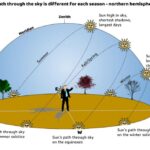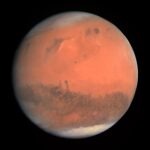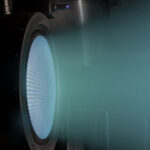
Where is the James Webb Space Telescope (JWST) headed to? News stories describe it in various levels of detail: a million miles beyond the Earth, a halo orbit around the Sun-Earth L2 point. Say what? As long ago as 1736,…
This is an unusual post for StarStruck. Only one image, and that one more than 400 years old, and no videos. This is a speech I gave to Lynchburg College’s (now the University of Lynchburg) Senior Symposium class in 2010.…

The sun always rises in the east and sets in the west, but a little observation of the sky can demonstrate that common sayings such as this may be only partially true. In the Northern Hemisphere, at least if we…

This Thursday February 18th at 3:55 p.m. EST, the Mars Perseverance rover will either land in a crater on Mars—or perhaps create a new one. The “seven minutes of terror” involves a complex sequence of timed events to take a…

Three spacecraft launched last summer will all arrive at Mars soon. The first is the United Arab Emirates’ Hope mission, which will begin firing its rocket engine to go into Mars orbit at 10:30 a.m. EST on Tuesday, February 9th.…
Every science fiction show that has its protagonists zipping around the solar system and traveling from one planet to another in a few days or weeks instead of months or years requires some fictional propulsion system. Star Trek of course…

“Rocket Science” is often used to describe something that is incredibly complex and difficult to understand, something that only people of superior intelligence can grasp. Actually, while the engineering skills required to make a rocket that does its job efficiently…